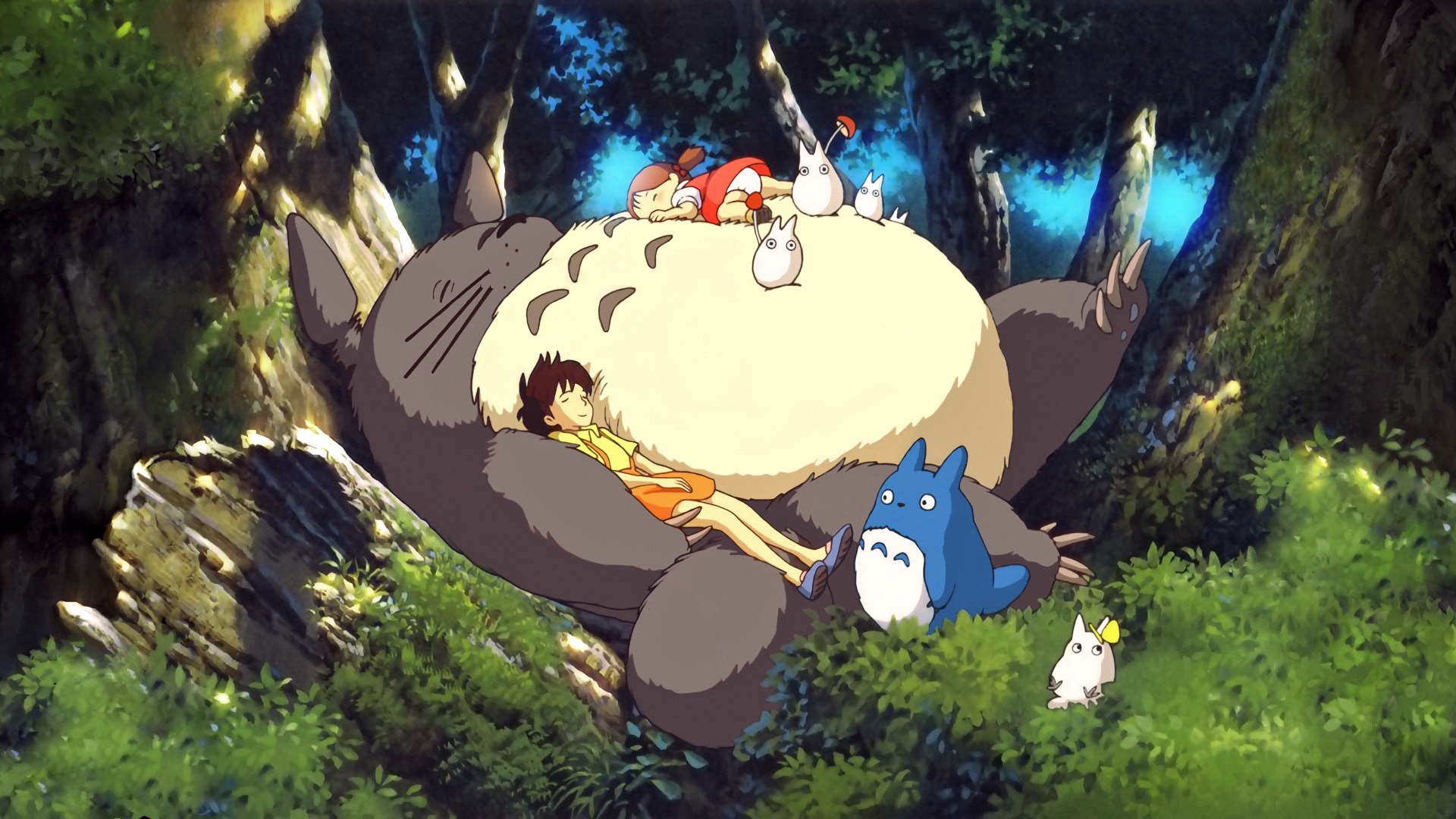-
Posts
3738 -
Joined
-
Last visited
-
Days Won
25
Content Type
Profiles
Forums
Blogs
Events
Posts posted by Down
-
-
Quote
Also, remind me to kill whoever came up with the Audrey fanclub badge.
Well I wouldn't want to denounce anyone... *coughs* Nosebleed *coughs*
*disappears in a cloud of smoke*
-
The official site makes it pretty clear (as clear as it can be in the middle of april's fool jokes announcements anyway...) that it's gonna be a movie.
I think this could make a pretty good 1 hour movie depending on who does it.
-
It is indeed asking you to enter a product ID without which the program can't be launched.
Asking for help on cracking games/illegal stuff is not allowed on the forums (cf the rules) so I'll be locking this thread.
-
Oh for fuck's sake, why don't internet devs understand that reducing the vertical space with shit like this:

...that follows you as you scroll down is literally horrible? There's plenty of space already at the horizontal, just let it be there!
Can we just go back to 2007 internet with bbcode and no fancy shit plz?

-
3 minutes ago, hsmsful said:
Confession: my hair fetish is starting to really get out of hand in real life
I hope I am never caught while sniffing the hair of girls I sit behind (not on purpose
 )
)
I AM NOT A CREEP I SWEAR
I'm sorry but that *is* creepy.
2 hours ago, Fred the Barber said:Incidentally, Umberto Eco's essays on translation are well worth reading.
I read Experiences in Translation recently (well, the french version, which is a sort of fusion between Experiences in Translation and Mouse or Rat: Translation as Negotiation if I'm correct) and it was really interesting indeed. Also ended up making me want to read old poetry and latin authors, which is really not what I needed to add to my already way too big to-read list.
-
3 minutes ago, Kawasumi said:
I cant even see their main site, I think I could at some point actually.
lose.jp doesn't work but lose.jp/official and most pages you can access from there do.
-
I just tried with a japanese VPN and got the same error, it's not foreigner-specific.
-
23 minutes ago, Rooke said:
Funny you should mention 10,000 words is considered a short story as that tends to be around how long a 10 hour VN is -_-.
That doesn't add up, you got an order of magnitude wrong here.
Most people read between 150 and 400 words per minute. 10 000 words should take you between 25 minutes and an hour. Even an unskilled reader wouldn't be much slower.
To give a figure easy to picture, an average book in english would have around 400 words per pages (around 40 lines with an average of 10 words per lines). That of course varies a lot depending on font, language, format, etc but let's settle with 400, 10 000 words make a 25 page "book". The 40 000 words limit Rooke mentioned would make 100 pages, which sounds reasonable.
A 10 hour long VN is more likely to be, for the "average" reader (which is only a statistical entity, the dispersion is large), the equivalent of a 150 000 words / 375 pages novel. Visual novels are REALLY long. Of course the comparison is not very good, because I'm using a lot of averages and assumptions, the method of delivering the text is different, etc...
-
The fair fight you call for isn't gonna happen because in order to be fair both versions would need to have an equal amount of marketing, and AA versions go to Steam so they have an overwhelming advantage.
The reason why AO versions have modest sales at best is because information about them only circulates within certain communities that, in total, amounts to a vanishingly small pool of buyers compared with the Steam market and the gaming market at large. The only ways to get out of that slowly expanding but still fairly small group is to either go to Steam, which an AO version can't do, or exist in the larger gaming press, which so far has superbly ignored visual novels, especially AO ones.
What Mangagamer shows though, is that it's very possible to make profit out of AO titles that only sell to a niche audience. Mangagamer doesn't sell a lot but sells at a decently high price and enough to keep running, whereas Steam dictates a race to the ever-smaller prices which completely deregulates normal price practices and perceptions and probably endanger those who can't hope to sell billions of copies even at a small price.
In other words Sekai Project should probably be able to make some profit out of AO versions. Whether they want to or not is up to their strategic choices. But it's not comparable with selling AA versions anyway, the market's fundamentally different.
-
16 hours ago, babiker said:
And while most of your requirements are understandable, I do have to ask if you consider having a numerical score as part of the Divine Fuwa Style that must be followed.
The truth is, we put numerical score because it maximizes the amount of salt produced by our reviews. Aside from the few people that are actually really mad that we use numerical scores (they're a great source of fine-grained salt), a lot of people wouldn't bother to read the review anyway and just look at the score. We can make all those people mad too, isn't that great?
-
The best or worse, I don't know which, that can happen is an 18+ restoration patch. Which would make the internet explode if it reaches a bit too far.
-
It's literally impossible they would ever release an 18+ version of this even if it was restricted to the US only. I doubt even JAST/MG would ever take the risk.
If it goes to Steam, I totally expect some outrage because they won't be able to cut 50+ H-scenes without leaving high levels of loli sexualization.
-
>MaiTetsu
>MAITETSU

Boys, brace yourselves because this shit is extremely ヤバイ (linking the nsfw version of this pic would land people in jail)
-
-
6 minutes ago, Flutterz said:
That's what I kept thinking, but then I found a reddit post explaining the order, started watching Bakemonogatari and dropped it 2 episodes in because it's trash.

ur waifu is trash
(one good thing about IPB4 is how it previews a part of the latest message in a thread, so that you don't miss too many hot takes in threads you don't often read)
-
7 minutes ago, Nosebleed said:
I'd much rather have seen a segment on how dating sims came to be and what impact could they have on the players and what possible futures may lie in dating sims, but even then that's not so much a game theory is it?
Strictly speaking (i.e. in the academic sense of the term) game theory refers to the study of rational/logical decision-making in strategic situations (games in the usual sense of the term but that can be broadened to many things like economy). It's a theory that predates video games to the spot is kinda trusted already. The right term for critical investigations of games (probably what this dude wants to do) would be "game studies" if you named it american-style, ludology if you named it european style. The interaction between dating sims and their players would definitely be in the domain of game studies, while how they came to be would rather be video games history.
-
While educating people on a few psychology/communications studies and principles through an example applied to video games is nice and cool, the following conclusion that dating sims do help for real life dates is extremely dubious and it's disappointing to not see the least bit of questioning the representation of men and women and the mechanics of their relationships in those games, the "conquest" vision of dating both in the games and in real life, and a bunch of other kinda stinky assumptions.
Also guys this is not the chatter boards, I know the video isn't all that interesting but try to at least stay on topic...
-
7 hours ago, Flutterz said:
I like and share Down's excitement for the whole thing so #TeamDown it is
5 hours ago, Fred the Barber said:#TeamUnenthusiastic is "Idk green?" our battle cry? And is it better described as a battle mutter?
Y'know guys, I might seem unmotivated by this but if you want to go into it declaiming Shakespeare verses I got nothing against it. It'll still be better than the lines from third rate fantasy novels of one of the opposite team
 #letthethrashtalkbegin
#letthethrashtalkbegin
By the way a
random number generatorcareful reflection led me to designate Tiago as our general. Congratulations for your promotion.- Dergonu and Mr Poltroon
-
 2
2
-
Idk green?
-
You might as well call it Kaguya's army of chuu2s at this point

-
37 minutes ago, Dergonu said:
"I will avenge you ..."
Sorry, that's OOC.
Will it be an 18+ fanfic?

-
The postulate of King-Kong can easily be argued to be sci-fi: there's a scientific extrapolation which is that "there exists on an unexplored island a gigantic and prehistoric ape".
The science doesn't need to take place in the future, it doesn't need to be physics.Of course you could probably also argue it's fantasy... but usually fantasy would be more rooted in myths and folklore, I guess.
...Btw as far as I know King-Kong is often classified as horror rather than sci-fi or fantasy.
-
Some people argue science-fiction is fantasy, and fantasy is science-fiction. The definitions of science-fiction and fantasy themselves vary a lot and are also culturally influenced - the concept of sci-fi in Japan definitely doesn't matches the western concept, for example.
Technically, the difference between the two would be that sci-fi relies on a setting that is explained through scientific extrapolations, while fantasy relies on a supernatural setting (but which is considered normal by the people living in that setting), it's closer to something like myth.
But then again, the difference between extrapolated science and supernatural is thin. You can always "explain" supernatural by some incomprehensibly advanced science, while incomprehensibly advanced science is undistinguishable from magic.
-
The very purpose of the CoC is to contain all the shitpost, clickbait, jokes etc you guys are complaining about. If you think these things don't belong on this site, then what you want is not better moderation, it's a change of the site itself and its current rules.
As far as I'm concerned, moderation deals with some of the specific rules of the site that need to be enforced (nsfw, loli policy, illegal links), and hate speech, which will be harshly treated. The rest is almost cosmetic: moving, merging, splitting to clean up threads, once in a while try to calm down spamming and derailing if it really gets too far, but I'd rather stay very liberal on those because I don't want to treat forum posters as kids (even though they often act as they are) and I don't believe "repressive" moderating is needed nor efficient in those cases.





Fuwanovel Confessions
in The Coliseum of Chatter
Posted
I actually looked up things a bit when Rooke posted that, and it turns out it's due to a lot of women possess four types of retinal photopigments (instead of the usual three), which seems to be proven to improve to some degree the ability to distinguish colors. But whether that allows to differentiate slight changes of shades is not completely clear because the way - or, most probably, the ways - we process colors is not well elucidated yet. Basically there's a difference in "tetrachromats" but there's no clear consensus on what exactly it is. Science that is less than a decade old is always to be taken with a critical eye, because it's liable to change pretty fast, and that's even more true about biology/neurosciences.
That's interesting. There's been enough attacks and proofs against the Sapir-Whorf hypothesis that only weak versions of it are sustainable but I've always entertained the idea that there must be some amount of truth in it, so it's cool to see that there's some evidence for stuff like that.
I'm not sure that just teaching yourself color names will allow you to separate them better though. A pretty obvious factor in color-related abilities is that you'll develop them if you need them (brain plasticity etc), but the names themselves would need to be attached to concrete examples and be used often.